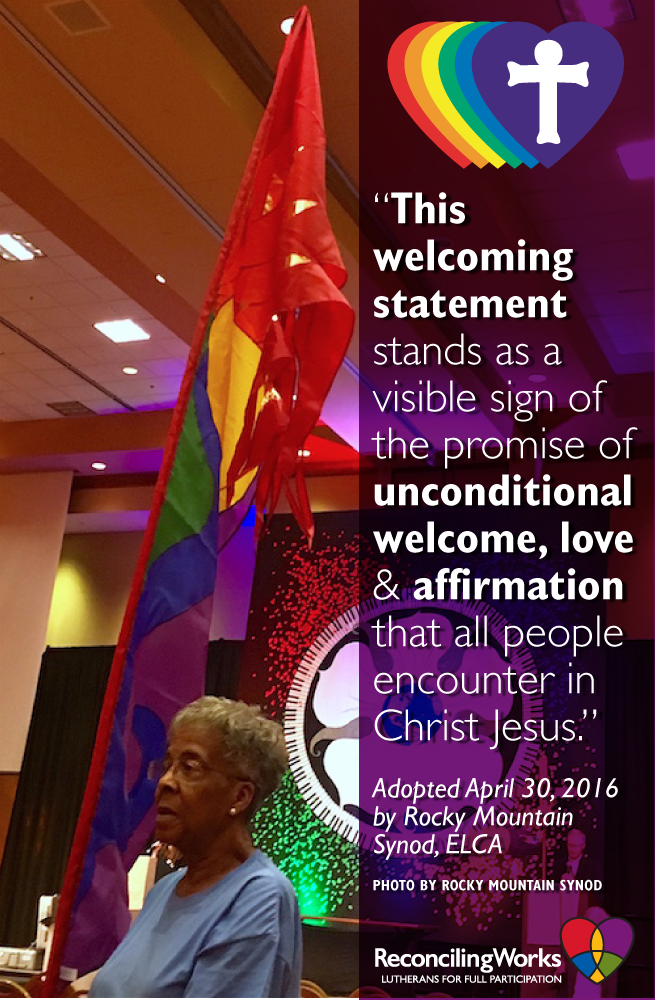 ReconcilingWorks celebrates the actions of the Rocky Mountain Synod (ELCA) to strengthen its welcome to LGBTQ people and develop its partnership with ReconcilingWorks and Extraordinary Lutheran Ministries. On Saturday, April 30, the synod assembly voted to:
ReconcilingWorks celebrates the actions of the Rocky Mountain Synod (ELCA) to strengthen its welcome to LGBTQ people and develop its partnership with ReconcilingWorks and Extraordinary Lutheran Ministries. On Saturday, April 30, the synod assembly voted to:
- Adopt a welcome statement: “We as the Rocky Mountain Synod, ELCA invite all into the fullness of God’s love. This invitation is inclusive of people of every race, national origin, immigration status, sexual orientation, gender identity or expression, age, physical or mental ability, sex, or station in life. We pledge to use our differences as gifts for our work together;”
- Give specific direction to the use of the welcome statement, the Reconciling in Christ logo, and the trans* flag on the synod website, conference and assembly materials, and “all other future official publications and communications of the synod;”
- Provide LGBTQ seminarians and candidates for rostered ministry with accompaniment resources, including referral to the resources of Extraordinary Lutheran Ministries (ELM);
- Provide for periodic, mandatory Building an Inclusive Church trainings as offered by ReconcilingWorks (or equivalent training) to train synod staff, candidacy committee members, synod council, conference deans, and other;
- Continue to encourage all congregations to become Reconciling in Christ, making use of resources as provided by ReconcilingWorks.
The authors of the resolution write, “The action stands as a visible witness to the intentional and specific welcome the Rocky Mountain Synod, ELCA, a Reconciling in Christ synod, will continue to extend to all people. This visible, faithful witness to the unconditional love of God is especially important at synod-wide events and in synod-wide publications where diverse groups of people gather together for the sake of our common mission together. While specifically intended to invite the full-participation of vulnerable and marginalized people and communities, the whole body of Christ is edified and enriched by the inclusion of voices and peoples that have been historically marginalized by the church and wider society. This welcoming statement stands as a visible sign of the promise of unconditional welcome, love and affirmation that all people encounter in Christ Jesus.”
